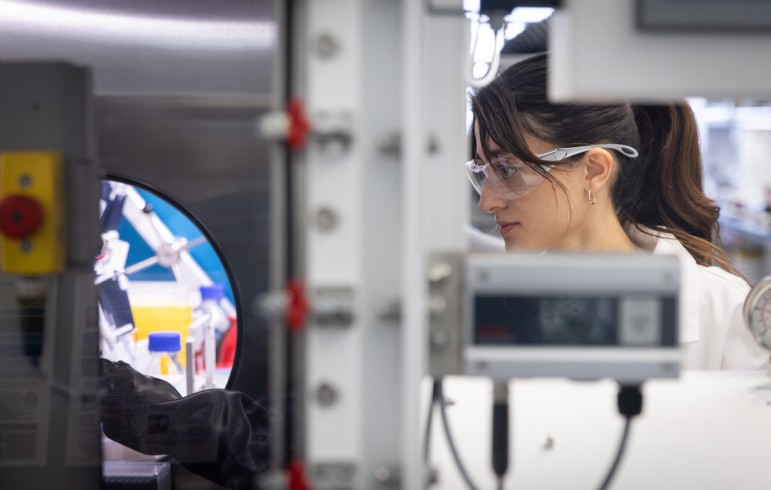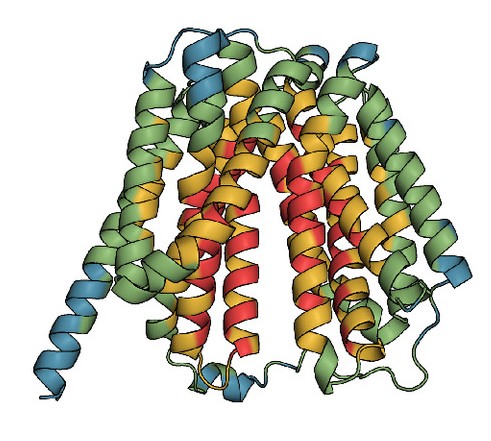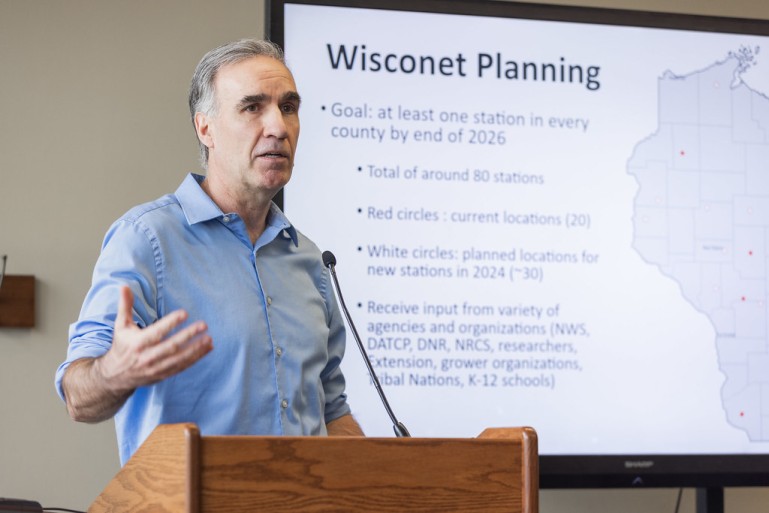Junior biology major Lizza Korolev is an undergraduate research assistant in the Sato lab, where she studies yeast with the goal of developing strains that can ferment sugars in switchgrass into sustainable biofuels.
A Wisconsin Energy Institute investigator and two energy experts are among the University of Wisconsin–Madison faculty and students honored in 2024 by the Wisconsin Alumni Research Foundation for their innovations.
University of Wisconsin–Madison researchers will use a 15-acre solar installation at the university's Kegonsa Research Station to study how photovoltaic energy production affects the underlying soil and how that land can be used to grow crops or feed animals.
UW–Madison scientists with the Wisconsin Energy Institute have developed a quick and inexpensive technique for detecting toxins and other harmful substances by using proteins as a biochemical alert system.
Heat pumps are a climate-friendly technology that can reduce energy bills. But new research shows adoption is much lower in communities of color and with more renters.
WEI investigator Rebecca Smith joined the UW–Madison faculty in August 2024 as an assistant professor in the Department of Plant and Agroecosystem Sciences, where she is applying her knowledge of cell wall and lignin structures to challenges in dairy sustainability, including ways to improve plant digestibility, reduce methane emissions, and increase carbon sequestration.
An international team of researchers, led by University of Wisconsin-Madison biochemistry professor Rick Amasino, was awarded $1.47 million to enhance plants’ abilities to mine metals from naturally enriched soils.



